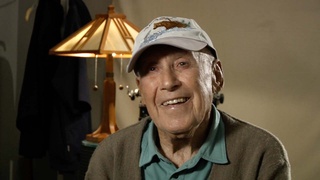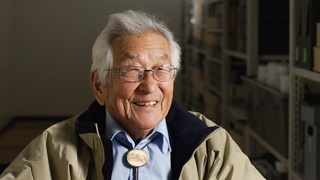Interviews
Volunteering to serve for the U.S. military in Japan
Well I had good grades and Japanese was easy because that time I could memorize. Japanese language is memory, that’s all. You memorize words and characters so it was very easy for me. I taught Japanese until the end of the war. The war ended in forty-five, and I was hoping to get back to school. But I wanted to visit my relatives in Japan having heard from my mother about them all the years I was in Kona. So I decided to volunteer to serve in Japan, and the requirement for us was to be commissioned as Second Lieutenant to go over to Japan. To become an officer, I had to go through basic training for three months in Fort McClellan, Alabama. And after that I was commissioned and went to Japan in 1946.
Date: May 29, 2006
Location: Hawai`i, US
Interviewer: Akemi Kikumura Yano
Contributed by: Watase Media Arts Center, Japanese American National Museum










